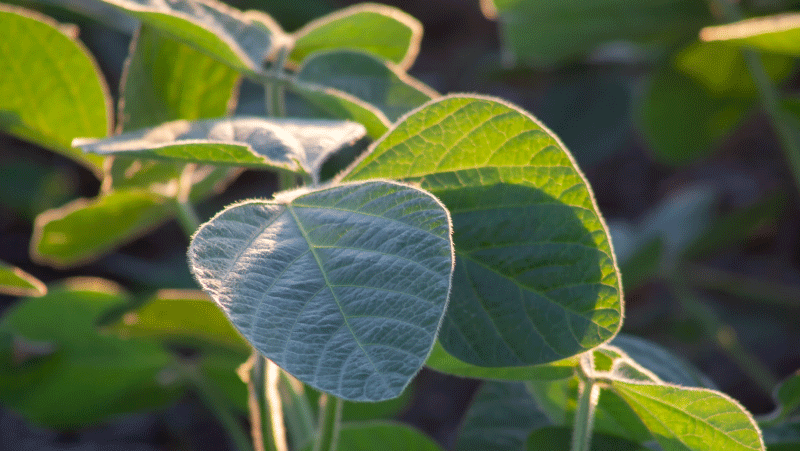USDA Invests $9M to Expand Reach and Increase Adoption of Climate-Smart Practices
The USDA has announced a $9 million investment in new Cooperative Extension and USDA Climate Hubs partnerships to bolster climate research and connect and share climate-smart solutions directly with the agricultural community.
“The Cooperative Extension system and the USDA Climate Hubs have unmatched capacity to reach agricultural, Tribal and underserved communities, as well as educators and students, and our nation’s farmers directly,” said Agriculture Secretary Tom Vilsack. “This partnership will strengthen climate research efforts and accelerate the development, adoption and application of science-based, climate-smart practices that benefit everyone.”
This investment is part of the National Institute of Food and Agriculture’s Agriculture and Food Research Initiative (AFRI), the nation’s leading competitive grants program for agricultural sciences. This new AFRI program area provides effective, translatable and scalable approaches to address climate change through regional partnerships, including the USDA Climate Hubs, and further extends outreach through organizations such as the Cooperative Extension Service.
“These new NIFA-funded projects will work toward net-zero emissions in agriculture, working lands and communities adapted to climate change, training a diverse workforce that can communicate and incorporate climate considerations into management and climate justice that is appropriate for unique U.S. agronomic conditions,” said NIFA Director Dr. Carrie Castille.
The initial six funded projects include:
- University of California (Davis) will develop multifaceted pathways with the California Climate Hub to climate-smart agriculture through stakeholder needs assessments, climate-smart agriculture trainings for technical service providers, regional workshops for farmers and ranchers, and student education with Extension service-learning opportunities. Participatory program development and delivery through extensive network of stakeholders, collaborators and supporters are at the core of this integrated proposal. ($1,500,000)
- Pennsylvania State University will create an education program to help private forests adapt and mitigate climate change, prepare minority owners to take advantage of carbon market opportunities, and prepare the forestry extension workforce to better serve their clients in forest carbon and climate issues, in collaboration with the Northern Forests and Southeast Climate Hubs. ($1,500,000)
- Montana State University will collaborate with the Southwest and Northern Plains Climate Hub staff and regional education and extension stakeholders to develop improved educational materials, modes of communication, and issue expertise that will help in assisting farmers and ranchers to better assess the sources of past crop and livestock production losses due to weather and climate disruption, as well as explore future projections for these causes of loss. ($1,500,000)
- Ohio State University is partnering with the Midwest Climate Hub and multiple universities to increase Midwest adoption of regionally scalable climate-smart activities. The project will improve shared understanding of needs of the Midwest’s diverse stakeholders, develop shared roadmaps for livestock and cropping systems, elevate perspectives and voices of historically underserved communities including black and indigenous communities, and strengthen climate science infrastructure through a re-imagined Extension-Midwest Climate Hub partnership. ($1,500,000)
- The Desert Research Institute Native Climate (Reno, Nevada) project team will strengthen the role of USDA Climate Hubs in Indian country by enhancing Native agroecosystem resilience through expansion of climate services and outreach in the Southwest and Northern Plains Climate Hub regions. Activities are designed to foster trust between Climate Hubs and Native farmers, ranchers, and resource managers through equitable and culturally appropriate information sharing, putting community at the center of solutions for climate change and food and nutrition security. ($1,500,000)
- The USDA Caribbean Climate Hub is partnering with minority-serving universities, including the University of Puerto Rico and the University of the Virgin Islands Extension, and non-profits to help historically underserved communities throughout the U.S. Caribbean and other coastal areas adapt to a rapidly changing climate and extreme weather events. They will develop education and Extension programs aimed at increasing climate literacy as well as helping land managers employ climate-smart agriculture and forestry techniques. Educational materials will be created in Spanish and English. ($1,500,000)
AFRI Background
AFRI was established by Congress in the 2008 Farm Bill and re-authorized in the 2018 Farm Bill. The program was re-authorized to be funded at $700 million a year, with the Consolidated Appropriations Act, 2021 funding AFRI at $435 million. NIFA provides AFRI grants to support research, education and Extension activities in six Farm Bill priority areas: plant health and production and plant products; animal health and production and animal products; food safety, nutrition, and health; bioenergy, natural resources, and environment; agriculture systems and technology; and agriculture economics and rural communities. Learn more about AFRI.
USDA Climate Hubs Background
USDA’s Climate Hubs are a unique collaboration across the Department’s agencies. They are led by the Agricultural Research Service and Forest Service located at 10 regional locations, with contributions from other USDA agencies including the Natural Resources Conservation Service, Farm Service Agency, Animal and Plant Health Inspection Service, and the Risk Management Agency. The Climate Hubs link USDA research and program agencies in their region with the delivery of timely and authoritative tools and information to agricultural producers and professionals.





